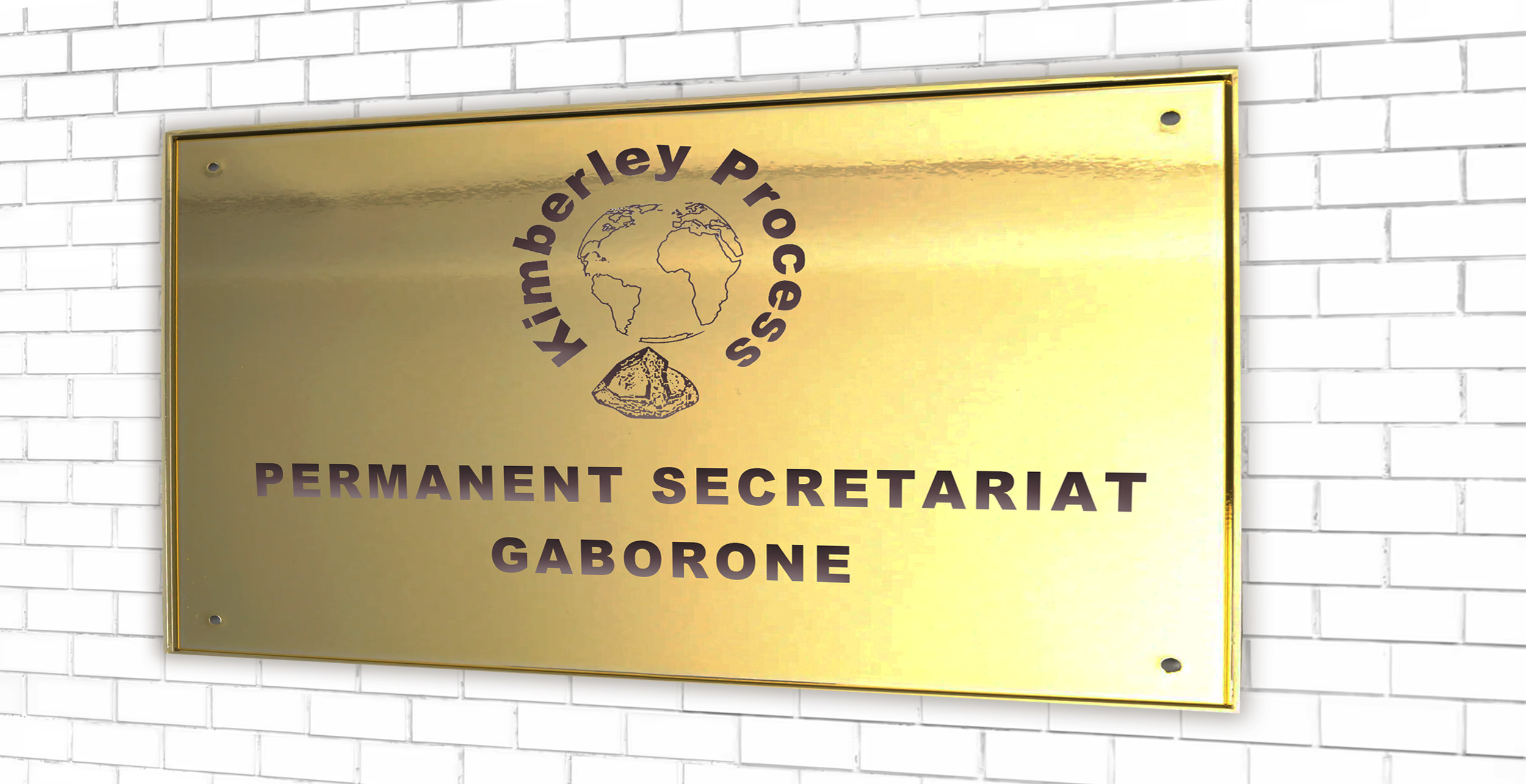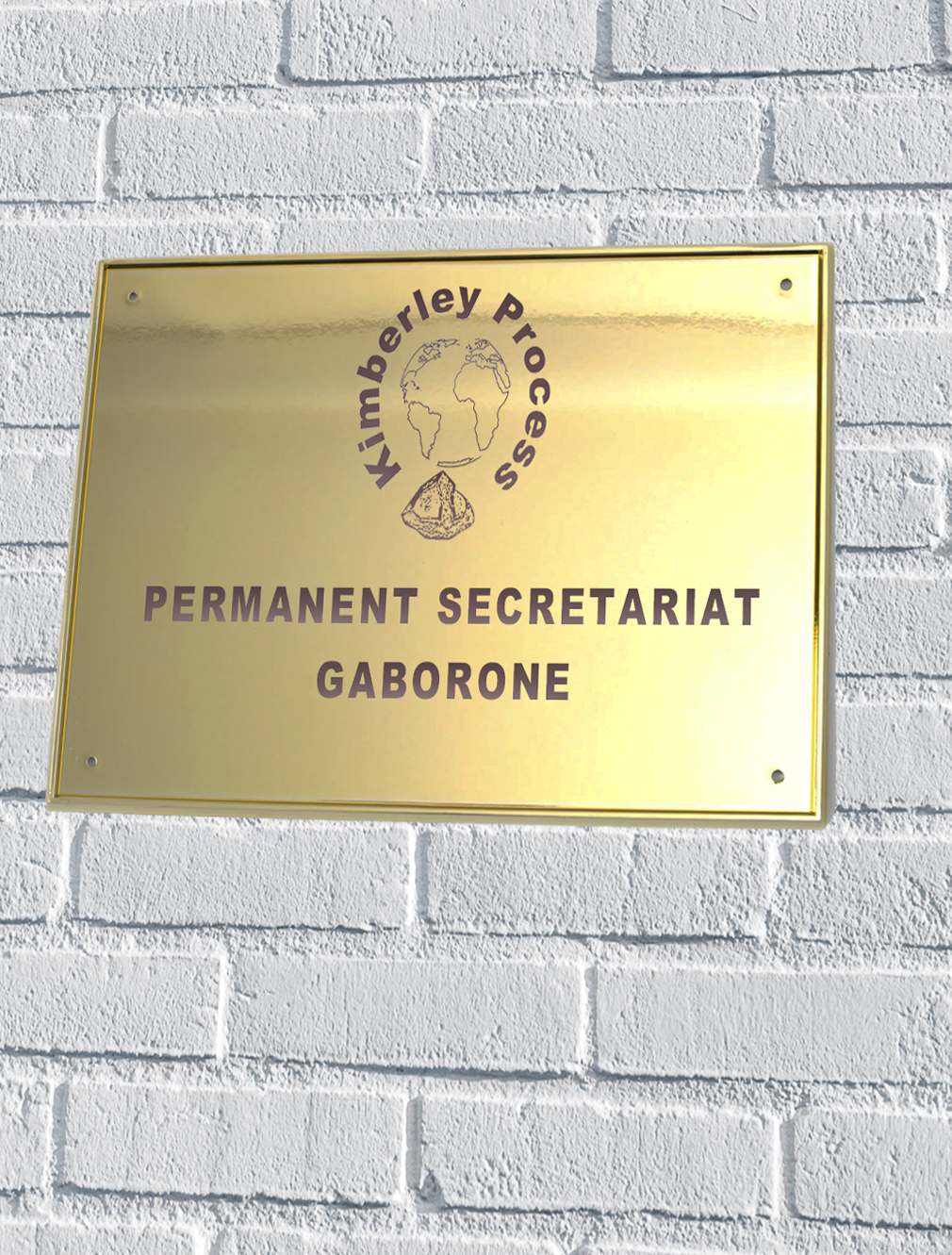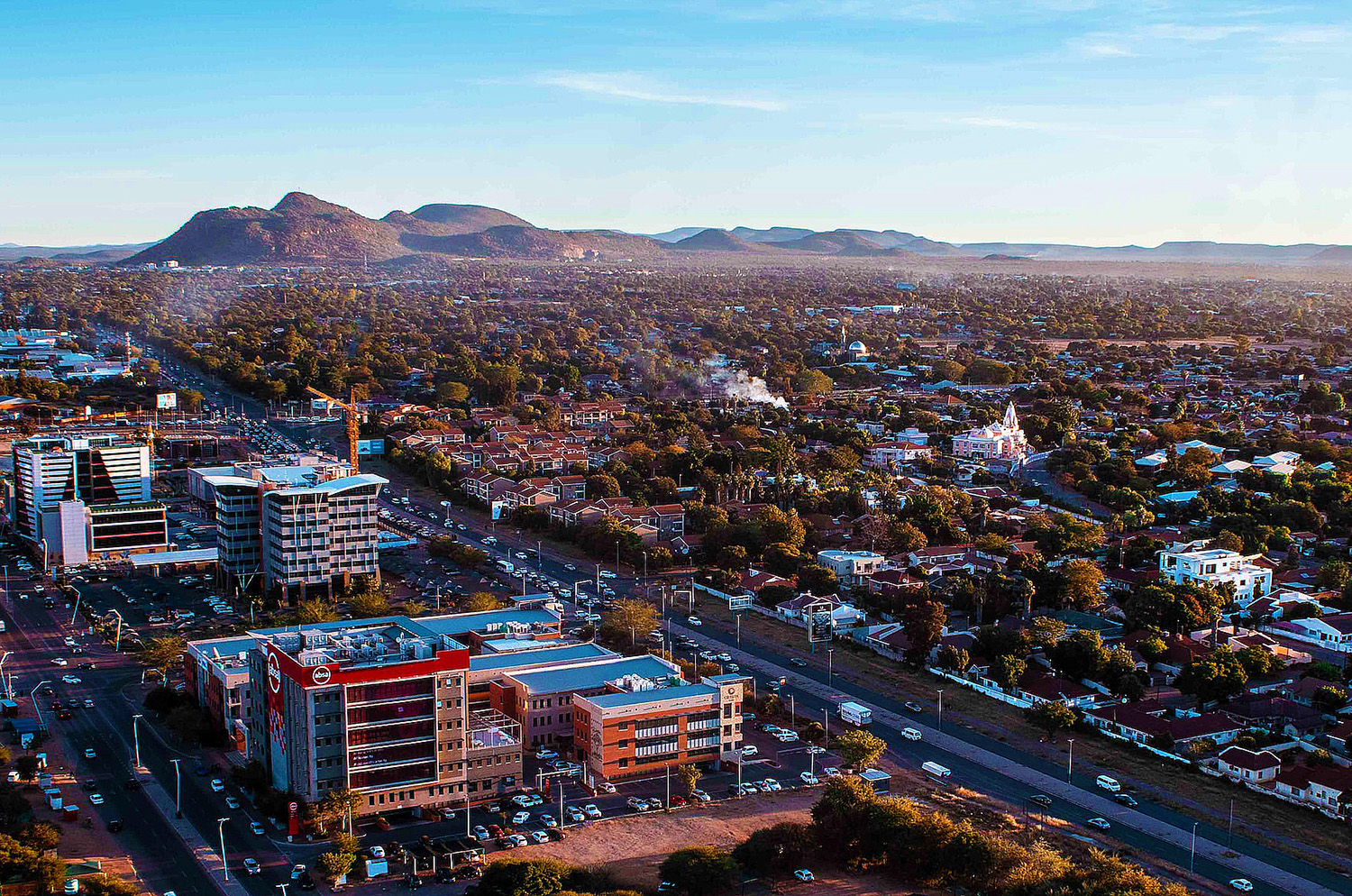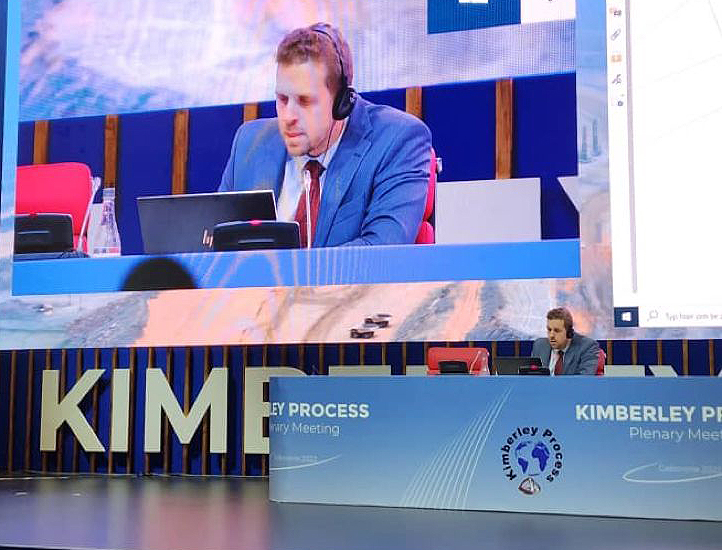Years in the making, KP Permanent Secretariat
set to begin operations early in 2024



By Steven Benson,
WDC Communications
A milestone, years in the making, was registered on November 5, 2022, during the Kimberley Process Plenary meeting in Gaborone, Botswana, when the body greenlighted a recommendation made by a Technical Expert Team (TET) chaired by the World Diamond Council, proposing that Botswana become the site of the prospective KP Permanent Secretariat. It is projected to begin operations in January 2024.
The TET had been appointed at an earlier KP Plenary meeting, in New Delhi, India, in November 2019, and then tasked with selecting the location of the headquarters of the KP Permanent Secretariat.
The creation of a KP Permanent Secretariat was a key recommendation of the Ad Hoc Committee that oversaw the previous Kimberley Process’ Review and Reform cycle, which had ended in 2019. The TET was charged with making a selection from a group of nations that had submitted proposals to host the new body, and it was empowered to do that according to a set of pre-determined evaluation criteria.
Botswana’s successful bid to host the KP Permanent Secretariat was indicative of the country and Africa’s growing role as the nerve center of the diamond trade. For a long while the world’s largest producer of rough diamonds by value, the country is also today the headquarters of De Beers global sales operation.
An absence that long challenged the KP
The fact that no permanent secretariat has functioned during the 23 years since the KP was established has posed an ongoing challenge to the organization, which for the past two decades has overseen the creation, implementation and operation of the most extensive regulatory system in the history of thhe international diamond trade, the Kimberley Process Certification Scheme (KPCS) – an international mechanism that today encompasses 85 countries, and in 2021 monitored rough diamond sales to cutting centers worth about $16.4 billion.
The absence of a permanent secretariat was in part a result of the haste in which the KP was established, at the height of the conflict diamond crisis in Africa during the early 2000s, but also due to the perception that a substantial infrastructure was not required. This is because the KPCS would not be implemented and enforced at the international level, but rather locally by the governments of KP member countries, or regionally in the case of the European Union.
The KPCS Core Document, which was approved in 2002 before the launch of the certification scheme, was somewhat vague about how the system would be managed. However, it did specify that, at the end of each Plenary meeting, a Chair would be elected to preside over the following year’s Plenary meetings, as well as the working groups and other subsidiary bodies that may be formed, and it additionally noted that for effective administration of the certification scheme administrative support would be necessary.
But the Core Document did not provide for an annual administrative budget, despite the fact that a relatively substantial input of funding would be required for at least two physical KP meetings annually, country review visits, the KP website and other communications activities, the collection and collation of statistics, and the operation of special monitoring committees, like the one currently tracking exports from the Central African Republic.
What this meant was that, in practice, those KP participants that agreed to take on official roles in the organization also acquiesced to financing their own activities, with the country holding the KP Chair at any point in time assuming the cost of a temporary secretariat, as well as the Intersessional and Plenary meetings that take place in any given year. The same was true for the chairs of the various working groups and committees.

The Central Business District of Gaborone, capital city of Botswana, in which the KP Permanent Secretariat will begin operating early in 2024.
The Administrative Support Mechanism (ASM)
At the 2011 KP Plenary meeting in Kinshasa, Democratic Republic of Congo (DRC), a stopgap solution was approved. It involved the establishment of a barebones, quasi-secretariat, which would become known as the Administrative Support Mechanism (ASM).
Among the ASM’s assigned tasks was the maintenance of the KP’s institutional memory, including all documents, minutes of meetings, Participants’ annual reports and reports of review visits and missions, KPCS-related legislation in the different member countries and the EU, and specimens of their certificates with updated authorized signatures, the collection and maintenance of data for import and export confirmations, and all other KP matters.
The ASM would also be responsible for building and maintaining the KP website, providing communication services, and logistical support for the KP chair, chairs of KP working groups and ad hoc committees. It also would be involved in the organization of meetings and country review visits, and follow through on training, data, and requests for technical assistance.
It was the industry rather than governments that assumed the task of financing and operating the ASM, with the World Diamond Council signing a memorandum of understanding to that effect with the Kimberley Process in 2012.
The task of managing the ASM was divided among four WDC members: the Antwerp World Diamond Center (AWDC), the Israel Diamond Institute Group of Companies, India’s Gem and Jewellery Export Promotion Council (GJEPC) and the Diamond House of the government of Ghana. The body was launched in 2013.
But, for more than 10 years, the individual most associated with the ASM is Elke Ceulemans, who has managed most of the work singlehandedly, operating from the AWDC headquarters in Antwerp. Addressing the KP Plenary in Gaborone in November 2022, WDC President Edward Asscher praised her as the “mainstay of the ASM, and consequently the KP.”
The maintenance of the KP Statistics website, however, which is one of the most complex administrative tasks carried out by the KP, remained solely in the hands of the organization’s Working Group of Statistics (WGS). For almost the entire period that the KP has been in operation, it has been chaired and administered by U.S. government, which has relied on the extensive expertise and capabilities of the International Trade Management Division of the U.S. Census Bureau.
Shaping the prospective KP Permanent Secretariat
Five countries submitted their candidacy for hosting the KP Permanent Secretariat, namely Austria, Botswana, the People’s Republic of China, the Russian Federation and the United States. Their proposals were reviewed by the WDC-led TET, which was first chaired by Peter Karakchiev, followed by Iris Van der Veken in 2019, and since 2022 by Wim Soons.
The United States and Russian Federation both withdrew from consideration in 2020. Austria followed suit in 2022 and, shortly before the before start of the Plenary meeting in November, China voiced its support for the candidacy of Botswana. This meant that the African country was the single candidate when the TET made its recommendation to the forum in Gaborone.
In its recommendation that was approved by the KP Plenary in November 2022, the financing of the KP Permanent Secretariat ’s operating budget for the first three years was also included.
The largest single contribution would be made by WDC, which pledged U.S. $83,333 per annum. The host country, Botswana, would be a responsible for 20 percent of the budget in both of the first two years and 22.5 percent in the third year. Each KP Participant country registering more than U.S. $1 billion of combined imports and exports of rough diamonds under the KP system would contribute U.S. $20,000 annum, while those registering between U.S. $500 million and U.S. $ 1 billion would contribute U.S. $10,000 per annum, those registering between U.S. $100 million and U.S. 500 million would contribute U.S. $5,000 per annum, and those registering below U.S. $100 million would contribute U.S. $2,000 per annum. Those registering no imports and exports would contribute $1,000 per annum.

WDC represenative, Wim Sooms, chairing the Technical Expert Team (TET), which oversaw the selection of a site for the KP Permanent Secretariat, during the KP Plenary meeting in Botswana in November 2022.
In its Final Communiqué, the Plenary acknowledged that the financial commitment made to the KP Permanent Secretariat by any Participants would subject to its govrnment’s annual budget cycle and the laws to which each is subject. Nonetheless, the Plenary underscored that, while the contributions were not legally binding, they would be critical to the proper functioning of the new body.
Preparing for the start of operations
To prepare for the physical launch of the KP Permanent Secretariat in Botswana, the 2022 KP Plenary set up a taskforce under the Working Group of Diamond Experts, which is chaired by WDC representative James Evans Lombe. Assigned to head the taskforce is Wim Soons, the outgoing TET chair.
The immediate assignment for the taskforce will be to formulate terms of reference for the KP Permanent Secretariat. It can then be registered it as a legal entity under Botswana law, which will enable the opening of a bank account, so as to be able to receive funding. As part of its original proposal, the government of Botswana pledged to arrange office facilities in downtown Gaborone.
The next task will be to recruit a Secretary General to head the new bureau. His or her appointment will need to be approved by KP Plenary, which will formally meet in Zimbabwe before the end of the year. In principle, candidates for the position could come from any country, with the government of Botswana agreeing to provide work and residency permits for the official and his or her immediate family.
Regarding the staffing of the KP Permanent Secretariat, it is envisioned that it will have two employees in its first year of operation, including the Secretary General, and this would rise to three in its second year and four the year afterward.
During the third year of operation, it is envisioned that the KP Permanent Secretariat will assume the management of KP statistics, including the dedicated website, which currently is being done by International Trade Management Division of the U.S. Census Bureau on behalf of the Working Group of Statistics. This will be addition to all other tasks today being performed by the ASM.
Until the KP Permanent Secretariat begins operating, at the start of the 2024 if all goes as planned, the ASM will continue providing services to the Kimberley Process Chair and the head of the KP working groups and committees. For that purpose, the KP Plenary extended the mandate of the ASM through the end of 2023, when it met in Gaborone in November last year.
The WDC thus remains fully engaged, operating the ASM, leading the KP Permanent Secretariat Taskforce and, after the new body is formed, providing a major proportion of its annual budget. This is all in addition to WDC’s other priorities within the Kimberley Process, including but not limited to chairing the Working Group of Diamond Experts, participating in the committee overseeing exports from the Central African Republic, review visits and missions, and now, critically, the new KP Review and Reform Cycle, where high on the agenda is the recommended expansion of the “conflict diamond” definition.






